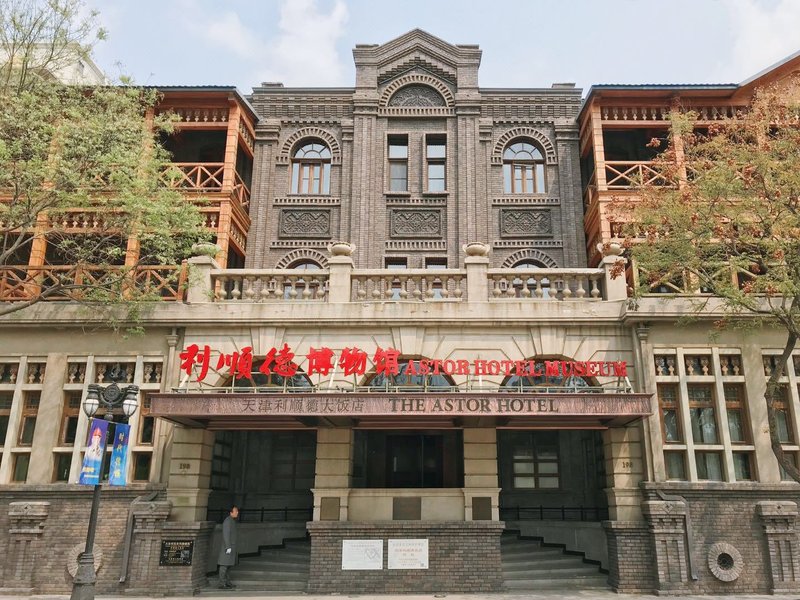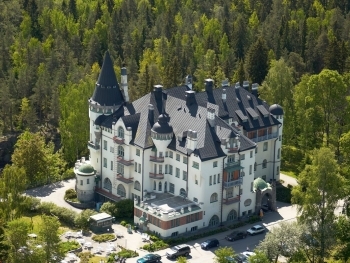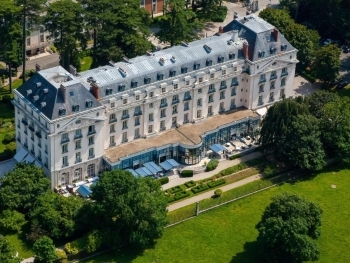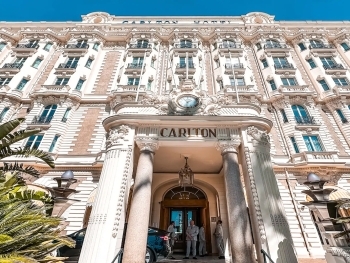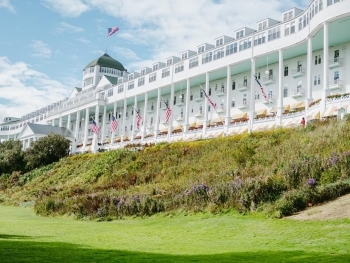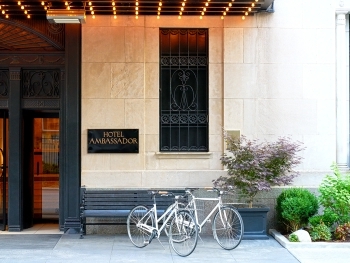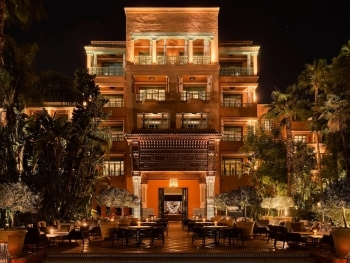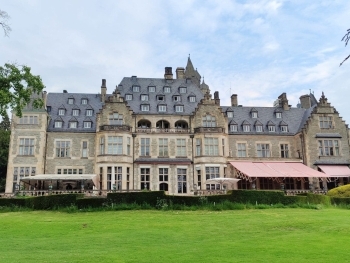The Astor Hotel in Tianjin, China, is a remarkable blend of rich history, architectural grandeur, and modern luxury. Established in 1863, this historic hotel is renowned for its elegant Victorian design, high-quality service, and cultural significance. Nestled along the scenic Hai River, the Astor Hotel has been a haven for dignitaries, travelers, and celebrities for over a century, providing a unique glimpse into Tianjin’s past and present.
A Rich Historical Legacy
The Astor Hotel’s storied history began when it was founded by British entrepreneur John Innocent. Originally intended to cater to Western traders and diplomats, the hotel quickly became a social hub in Tianjin, reflecting the city's status as a treaty port during the late Qing Dynasty. Throughout the years, it has hosted a plethora of distinguished guests, including political leaders, celebrities, and influential figures from various sectors.
During its early years, the hotel was known for its luxurious amenities and exceptional service, making it a favorite among Western expatriates and wealthy Chinese businessmen. Over time, it played a significant role in Tianjin's social and political life, serving as a venue for meetings and events that shaped the region's history.
The hotel has undergone several renovations to preserve its historical charm while integrating modern comforts. Today, the Astor Hotel stands as a cultural landmark, symbolizing the enduring legacy of Tianjin and the spirit of hospitality.
Architectural Marvel
The Astor Hotel is an architectural masterpiece that showcases a blend of Victorian and Chinese design elements. Its grand facade features ornate brickwork, large arched windows, and a majestic entrance adorned with classic columns. Inside, guests are greeted by high ceilings, intricate moldings, and elegant chandeliers that reflect the opulence of the Victorian era.
The hotel's interior design is a harmonious fusion of Western and Eastern aesthetics. Guests can admire beautifully crafted wooden furniture, traditional Chinese artwork, and luxurious fabrics that create an inviting atmosphere. The Astor's unique blend of architectural styles not only tells a story of its rich heritage but also enhances the overall guest experience.
Luxurious Accommodations
The Astor Hotel offers a range of elegantly appointed rooms and suites, each designed to provide comfort and sophistication. Guests can choose from various room categories, including Classic Rooms, Deluxe Rooms, and Executive Suites, all featuring modern amenities and classic decor.
Classic Rooms
The Classic Rooms at the Astor Hotel provide a cozy yet luxurious retreat for travelers. Decorated with tasteful furnishings and vintage accents, these rooms are equipped with:
- King-sized or twin beds adorned with high-quality linens.
- Elegant wooden furniture and soft lighting for a warm ambiance.
- Modern amenities, including flat-screen TVs, high-speed Wi-Fi, and minibars.
- En-suite bathrooms with premium toiletries, bathtubs, and rainfall showers.
Deluxe Rooms
For guests seeking a bit more space and luxury, the Deluxe Rooms offer a refined experience. These rooms feature:
- A spacious layout with additional seating areas.
- Upgraded amenities, including coffee machines and complimentary snacks.
- Stunning views of the Hai River or Tianjin’s skyline, perfect for a relaxing evening.
- Enhanced bathroom facilities with luxurious bathrobes and slippers.
Executive Suites
The Executive Suites provide an indulgent experience for guests who desire the utmost in luxury and comfort. These suites boast:
- Separate living and sleeping areas, ideal for both relaxation and business meetings.
- Elegant decor with antique furnishings and contemporary art.
- State-of-the-art technology, including large flat-screen TVs and advanced sound systems.
- Spacious marble bathrooms featuring soaking tubs, separate showers, and high-end amenities.
Dining and Culinary Experiences
Dining at the Astor Hotel is a memorable experience, with a selection of restaurants and bars offering both local and international cuisine. The hotel prides itself on providing exceptional culinary experiences, with menus that highlight fresh, seasonal ingredients.
The 1863 Dining Room
The 1863 Dining Room offers an exquisite fine dining experience in a beautifully decorated setting. This restaurant serves a mix of Western and Chinese dishes, with an emphasis on locally sourced ingredients.
- Guests can enjoy breakfast, lunch, and dinner in an elegant atmosphere, with attentive service and a carefully curated wine list.
- Signature dishes include traditional Chinese specialties, gourmet steaks, and seafood options that showcase the best of both culinary worlds.
- Afternoon tea is also available, featuring a selection of fine teas, pastries, and savory treats in a charming setting.
The Astor Bar
The Astor Bar is a sophisticated venue for guests looking to unwind with a drink after a day of exploring Tianjin. The bar features:
- A wide selection of premium spirits, wines, and signature cocktails crafted by skilled mixologists.
- A stylish ambiance with comfortable seating, perfect for casual gatherings or intimate conversations.
- Light snacks and tapas that complement the drink menu, offering a delightful experience for guests.
Events and Meetings
The Astor Hotel is a premier venue for hosting events, conferences, and weddings. With a range of versatile meeting spaces, the hotel can accommodate both small gatherings and large events.
The Grand Ballroom
The Grand Ballroom is an opulent venue that can host up to 500 guests, making it ideal for weddings, banquets, and corporate events. The ballroom features:
- Elegant chandeliers, ornate decor, and a spacious dance floor, creating a stunning backdrop for any occasion.
- State-of-the-art audiovisual equipment and customizable layouts to suit various event needs.
- A dedicated events team to assist with planning and coordination, ensuring that each event runs smoothly.
Meeting Rooms
In addition to the Grand Ballroom, the Astor Hotel offers several smaller meeting rooms equipped with modern technology and comfortable furnishings. These spaces are perfect for:
- Business meetings, seminars, and workshops.
- Private dinners and social gatherings.
- The hotel's team can assist in providing catering services, technical support, and event planning services.
Location and Nearby Attractions
The Astor Hotel's prime location along the Hai River places guests within easy reach of Tianjin’s most popular attractions. Visitors can explore a variety of cultural, historical, and recreational sites, including:
- Tianjin Ancient Culture Street: A vibrant area lined with shops, restaurants, and traditional architecture that reflects Tianjin's rich history.
- The Five Great Avenues: A historic district showcasing colonial-era buildings and architecture, perfect for leisurely strolls and photography.
- Tianjin Eye: A giant Ferris wheel located along the Hai River, offering stunning views of the cityscape.
- Italian Style Street: A unique area with European-style architecture, restaurants, and shops, providing a taste of Italy in the heart of Tianjin.
Sustainable Practices
The Astor Hotel is committed to sustainability and eco-friendly practices. The hotel has implemented various initiatives to minimize its environmental impact, including:
- Energy-efficient lighting and heating systems.
- Waste reduction programs and recycling initiatives.
- Sourcing ingredients from local suppliers to support the community and reduce carbon footprints.
The Astor Hotel in Tianjin is more than just a luxurious place to stay; it is a destination steeped in history and culture. With its stunning architecture, rich heritage, and exceptional service, the hotel provides an unforgettable experience for travelers seeking a unique glimpse into China’s past while enjoying modern comforts. Whether visiting for business or leisure, the Astor Hotel stands as a timeless symbol of elegance and hospitality in the heart of Tianjin.
